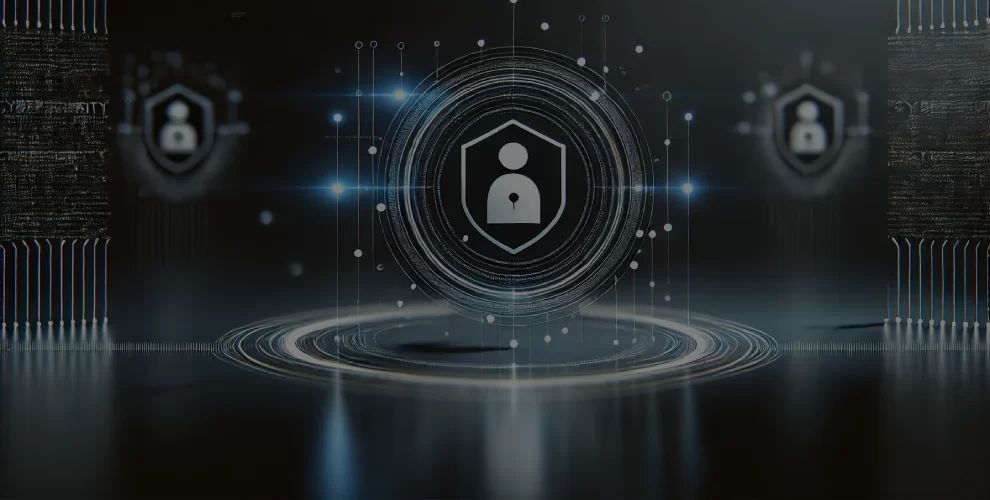
Exploring Different Cybersecurity Positions: Which Role is Right for You?
Table of Contents
Introduction
With the rise in cyber threats, the demand for cybersecurity professionals has surged, creating a variety of career opportunities in this dynamic field.
WikiGlitz has brought this insight to help you explore the various positions in cybersecurity and determine which role is right for you.
Key Takeaways
- Diverse Roles: The field of cybersecurity offers a wide range of roles, each with unique responsibilities and requirements. Understanding these roles can help you choose a career path that aligns with your skills and interests.
- Skill and Experience Requirements: Different positions require different levels of technical skills and experience. Some roles may be more suited to those with strong analytical abilities, while others might require a hands-on approach to problem-solving.
- Continuous Learning: Continuous learning and professional development are essential to stay ahead and advance in your chosen career path.
Types of Cybersecurity Positions
Security Analyst
Role and Responsibilities: Security analysts monitor and protect an organization’s networks and systems from cyber threats. They analyze security measures, identify vulnerabilities, and implement solutions to prevent breaches.
Required Skills and Qualifications:
- Knowledge of network security and firewalls
- Ability to analyze security incidents and data
- Certifications such as CompTIA Security+ or Certified Information Systems Security Professional (CISSP)
Career Progression: Security analysts can advance to roles such as senior security analyst, security manager, or security consultant.
Penetration Tester (Ethical Hacker)
Role and Responsibilities: Penetration testers simulate cyberattacks to identify and exploit vulnerabilities in an organization’s systems. They provide recommendations to enhance security and prevent real attacks.
Required Skills and Qualifications:
- Strong understanding of hacking techniques and tools
- Ability to think like a malicious hacker
Career Progression: Penetration testers can move up to roles such as senior penetration tester, security consultant, or head of penetration testing.
Security Consultant
Role and Responsibilities: Security consultants assess an organization’s security posture, identify weaknesses, and recommend solutions.
Required Skills and Qualifications:
- Broad knowledge of cybersecurity practices and frameworks
- Strong communication and problem-solving skills
- Certifications such as CISSP or Certified Information Security Manager (CISM)
Career Progression: Security consultants can advance to senior consultant roles or move into executive positions such as Chief Information Security Officer (CISO).
Incident Responder
Role and Responsibilities: Incident responders handle security breaches and cyberattacks, working to contain and mitigate damage. They also analyze incidents to improve future response efforts.
Required Skills and Qualifications:
- Knowledge of incident response procedures and tools
- Certifications such as Certified Incident Handler (CIH) or GIAC Certified Incident Handler (GCIH)
Career Progression: Incident responders can progress to roles such as senior incident responder, incident response manager, or cybersecurity manager.
Security Architect
Role and Responsibilities: Security architects design and implement secure network and system architectures. They ensure that security measures are integrated into all aspects of an organization’s IT infrastructure.
Required Skills and Qualifications:
- Strong understanding of network and system architecture
- Ability to design security solutions
- Certifications such as CISSP or Certified Information Systems Auditor (CISA)
Career Progression: Security architects can move up to roles such as senior security architect, enterprise architect, or CISO.
Chief Information Security Officer (CISO)
Role and Responsibilities: CISOs are responsible for an organization’s overall security strategy. They oversee the implementation of security policies and procedures and manage the cybersecurity team.
Required Skills and Qualifications:
- Extensive experience in cybersecurity
- Strong leadership and management skills
- Certifications such as CISSP or CISM
Career Progression: CISOs can advance to executive roles such as Chief Technology Officer (CTO) or Chief Risk Officer (CRO).
Forensic Analyst
Role and Responsibilities: Forensic analysts investigate cybercrimes by collecting and analyzing digital evidence. They work with law enforcement to identify perpetrators and prevent future incidents.
Required Skills and Qualifications:
- Knowledge of digital forensics tools and techniques
- Strong analytical and investigative skills
- Certifications such as Certified Forensic Computer Examiner (CFCE) or GIAC Certified Forensic Analyst (GCFA)
Career Progression: Forensic analysts can advance to senior forensic analyst roles or move into cybersecurity consulting.
Cryptographer
Role and Responsibilities: Cryptographers develop encryption algorithms to secure data. They work to protect sensitive information from unauthorized access and cyber threats.
Required Skills and Qualifications:
- Strong background in mathematics and computer science
- Knowledge of encryption algorithms and protocols
- Certifications such as Certified Encryption Specialist (EC-Council)
Career Progression: Cryptographers can advance to senior cryptographer roles or move into research and development positions.
Choosing the Right Cybersecurity Role for You
Assessing Your Skills and Interests
- Technical vs. Non-Technical Roles: Determine whether you prefer hands-on technical work or strategic and advisory roles.
- Preferred Working Environment: Consider if you thrive in high-pressure situations, enjoy problem-solving, or prefer designing and planning.
Educational Background and Experience
- Entry-Level Positions for Beginners: Look for roles such as security analyst or incident responder that require foundational skills and certifications.
- Advanced Roles for Experienced Professionals: Consider positions like security architect or CISO that require extensive experience and advanced qualifications.
Industry Demand and Salary Expectations
- High-Demand Roles: Roles like security analyst, penetration tester, and incident responder are currently in high demand.
- Salary Ranges: Research salary ranges for different positions to align your career goals with financial expectations.
Gaining Relevant Skills and Experience
Certifications and Training Programs
- Popular Certifications: CompTIA Security+, CEH, CISSP, CISM, and OSCP.
- Training Programs: Enroll in online courses, bootcamps, and certification programs to gain relevant skills.
Hands-On Experience
- Internships and Labs: Gain practical experience through internships and labs.
- Online Platforms: Utilize platforms like Hack The Box and TryHackMe for interactive practice.
Networking and Professional Development
- Professional Organizations: Join organizations like ISACA and (ISC)².
- Conferences and Events: Attend cybersecurity conferences and events to network and stay updated.
Conclusion
Exploring different cybersecurity positions is crucial to finding the role that best fits your skills, interests, and career goals. By understanding the responsibilities and requirements of each position, you can make an informed decision and navigate your career path effectively.
WikiGlitz has brought you these insights to help guide your career choices in the dynamic field of cybersecurity.
For more insights and tips on cybersecurity careers, explore other articles on our blog and stay updated with the latest trends and best practices in the industry.
FAQs
How can I become a penetration tester?
Gain knowledge of hacking techniques, earn relevant certifications like CEH, and gain hands-on experience.
What skills are required for a security consultant?
Broad knowledge of cybersecurity practices, strong communication skills, and certifications like CISSP or CISM.
What does an incident responder do?
Handles security breaches and cyberattacks, working to contain and mitigate damage.
What is the role of a Chief Information Security Officer (CISO)?
Responsible for an organization’s overall security strategy, overseeing the implementation of security policies and managing the cybersecurity team.
Want to keep up with our blog?
Our most valuable tips right inside your inbox, once per month.
Error: Contact form not found.
WikiGlitz Team
Welcome to WikiGlitz, your ultimate destination for tech insights and innovation. Our expert team is dedicated to delivering free resources and professional advice on various technology topics, including Artificial Intelligence, Cyber Security, Cloud Computing, and more. We strive to empower our readers with up-to-date information and practical guidance, ensuring you stay ahead in the rapidly evolving tech landscape. At WikiGlitz, we are passionate about making complex technology accessible to everyone. Our team of seasoned experts curates content that is both informative and engaging, helping you understand and leverage the latest tech trends. Whether you're a tech enthusiast or a professional, WikiGlitz is your go-to source for reliable, expert-driven content. Join us on this journey to explore and embrace the future of technology.





